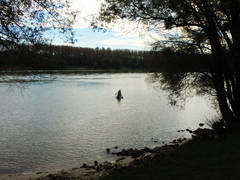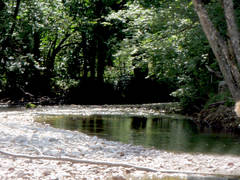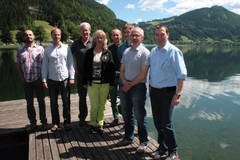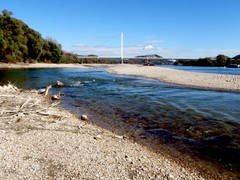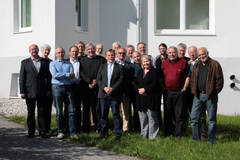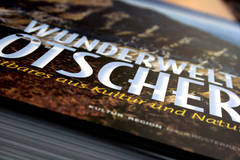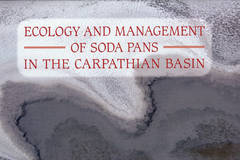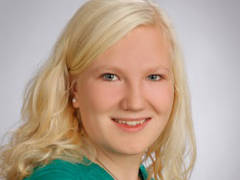As one of the large rivers with greatest biodiversity in Europe, Danube nowadays rapidly loses its ecological functions due to excessive anthropogenic alteration. Zheng Xiaoxiong investigated in his master thesis effects of different modified river habitats on carbon cycling and nutrient dynamic in the river Danube. Recently he graduated successfully.
Changes in land use and intensification of agriculture have led to an increase of phosphorus load in streams. Marine Decrey wrote her master thesis about that topic, under the title „The efficiency of in-stream phosphate uptake and retention along a gradient of in-stream nutrient loading“. Recently she completed her studies successfully.
The hydrological institutes of the Czech Republick and Lower Austria visited WasserCluster Lunz to get informed about the ongoing research. Scientific manager Thomas Hein introduced the research at Lunz, moreover the guests visited the experimental flumes and mayor Martin Ploderer guided them to the natural sights of the region, such as the three lakes at Lunz.
Marina Ivankovic, master student of the working group Bioframes, investigated in her master thesis epilithic microorganisms from twelve habitats along the Danube in Austria and Croatia. She recently finished her master studies successfully. Congratulations!
On May 28th and 29th the Biological Station Lunz – which was an important institution in the development of limnology as a scientific discipline – was meeting point for the „Old Brains“ of limnology. At a symposium themed „Old Brains“ for „New Blood“ 20 scientists from all over Austria met and discussed the history of limnology.
The new book „Wunderwelt Ötscher“ tells storys about the region around the so called „father mountain“. In the book you can also find an article about WasserCluster Lunz and the history of science at Lake Lunz. The book was presented recently at the ORF-studio of Lower Austria in St. Pölten.
Soda pans are one of the most important investigation areas of Zsófia Horváth und Csaba Vad. Under the title „Ecology and management of soda pans in the Carpathian Basin“ a book was published, with a contribution of the two researchers from the WCL team.
The Austrian Research Promotion Agency (FFG) awarded the excellent report of Katharina Brenn from Waidhofen, who is a student of the HLUW Yspertal and did her internship in summer 2014 at WCL. Her report is among the 20 best all over Austria. Minister Alois Stöger is going to hand over the award at a ceremony in April.




